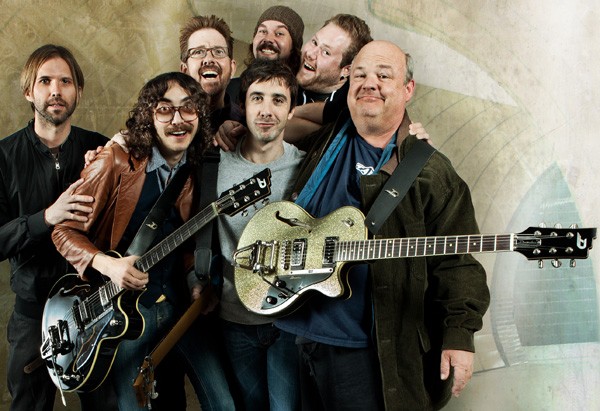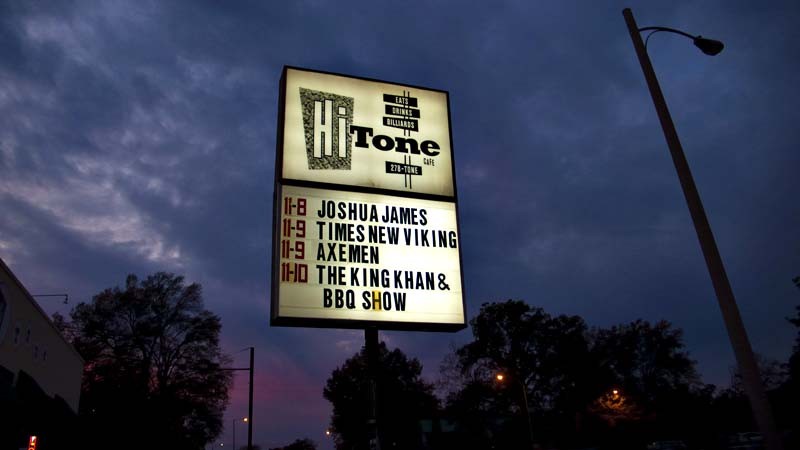For about 15 years, Patrick Haggerty was content to play country standards for audiences at retirement homes. “The old songs from the ’50s I heard in my childhood stuck to my ribs,” he says. “Those were the songs people wanted to hear.”
Then, about six years ago, he got a call from a music label executive offering him a contract. “That never happens, right? Almost all artists push and push to get anybody to think about listening to their songs, much less offering them a contract. … I knew they were selling encyclopedias, that it couldn’t possibly be true. But it was.”
The label, Paradise of Bachelors, wanted to reissue an album Haggerty made in 1973 called Lavender Country. It was the first gay country album ever recorded. “I lived my whole life without acknowledgement and recognition. When we made Lavender Country, gay country was so completely out-of-the-ballpark absurd that no one would touch it with a 10-foot pole.”
Haggerty grew up on a dairy farm near the Canadian border in the 1950s. “Rural Washington in 1955 was very much like rural Tennessee,” he says. “Maybe a little more progressive, but not much. What we heard on the radio while we were milking cows was country music.”
Hank Williams, Jimmy Reed, and Bonnie Guitar made an indelible impression on him, but, he says “My real, true love, when it comes to country, was Patsy Cline. I really related to her.”
Haggerty was one of 11 children. His father bought him his first guitar at age nine. “He was an unusual man for his time and place. He looked like Pa Kettle. He had clodhopper boots and carried around a coffee can that he spit his juice into. He was missing half his teeth. He really looked like a bumpkin, but that was a disguise. … He never denigrated me or put me down. He never said I can’t do that, even though I was doing drag and wearing blonde, bailing-twine wigs, and singing show tunes, and dancing on his tractors — and being completely incompetent at farming.”
In 1969, Haggerty was living in Missoula, Montana, and playing in the burgeoning protest folk scene. “The day after the Stonewall riots happened, I came out — by myself — in Missoula. I just couldn’t stand it any longer. I heard the call, and I jumped out.”
Four years later, he gathered a band in Seattle to make Lavender Country. “People ask why I chose country as a genre to do gay stuff. Well, in 1973 it didn’t matter what genre you chose. You were on the outs anyway, so what did it matter?
“One thing that was really significant about the Lavender Country album, was that it was Stonewall Riot, out, gay liberationist folk who produced this album,” Haggerty says. “It was a community-sponsored event. I could have never done it by myself. I think it’s important, looking at the politics of it. Yeah, I wrote all the songs; I’m the lead singer. I get all that. But it was Seattle’s gay community that made Lavender Country.”
In 1973, the album made barely a ripple. “So I lived a life of political activism, did a lot of social work, and raised kids,” Haggerty says.
But all that changed with one phone call. Lavender Country was music review website Pitchfork’s Best New Reissue of 2014, and Haggerty has been drawing attention ever since. He’s been the subject of three documentaries and is currently in negotiations for a Hollywood biopic. After his spring tour, he will go to San Francisco to accompany the new Lavender Country ballet. On March 19th, Haggerty will play the Hi-Tone with Memphis bands the Dixie Dicks and the Paisley Fields.”I’ve never been to Memphis, so this is exciting for me,” he says. “Who wouldn’t want to do music in Memphis?”
Haggerty, a self-described socialist revolutionary about to turn 75, says he’s right where he wants to be. “At this stage of the game, especially given what’s been going on in this country right now, to be able to use Lavender Country as a vehicle for social transformation, the very reason I made it in the first place, is beyond a dream come true.”
Patrick Haggerty plays the Hi-Tone March 19th, with openers Dixie Dicks and Paisley Fields.

